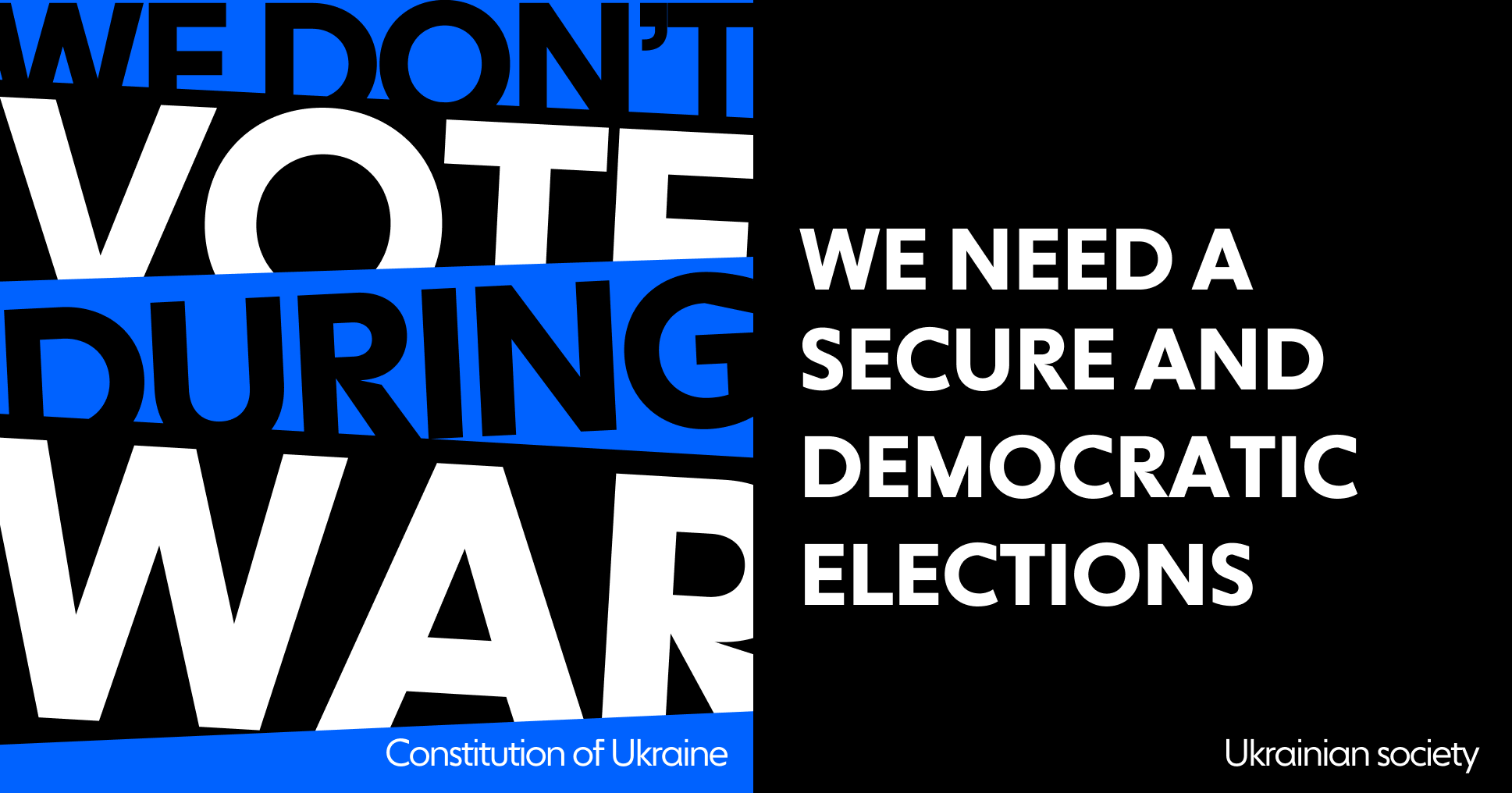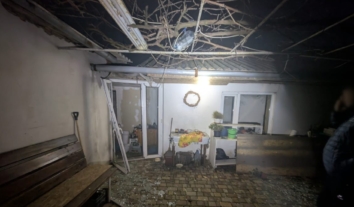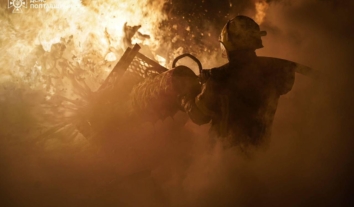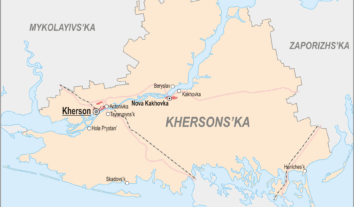Ukrainian civil society organisations explain why Ukraine can’t hold elections during martial law
Over 130 leading civil society organisations have called on international partners to focus on security support for Ukraine rather than pushing for wartime elections, stressing that democracy requires even stronger protection during wartime when the cost of mistakes is extremely high.

In a detailed statement of various non-governmental organisations (NGOs), their representatives outlined that elections in Ukraine should follow a logical democratic sequence:
– Achieving a sustainable ceasefire under international security guarantees;
– Proper restoration of election infrastructure;
– Lifting martial law and reaching an international settlement.
“Just as the international standards for peaceful and post-conflict elections are no different, there is no other measure of democracy than the real access of citizens to govern their state through their representatives, legally elected in free and fair elections by secret ballot without intimidation or threats,” the statement reads.
The NGOs reminded the readers that it is Russia’s unprovoked act of aggression against a sovereign state which makes holding presidential and parliamentary elections in Ukraine impossible.
They elaborated that Russia is not a democracy: there is no real opposition, no independent media, no minimum rights and freedoms, and no political pluralism.
In contrast, there is true consensus in Ukraine regarding the need to have elections no earlier than six months after the end of martial law, and the government, opposition, and society support this. The legitimacy of the Ukrainian government is the exclusive prerogative of the Ukrainian people.
The NGOs called on international partners to take into account Ukraine’s voice in any peace process and a logical sequence of democratic steps for an election, namely:
1) a sustainable ceasefire under the security guarantees of guarantor countries;
2) proper preparation for elections and the restoration of the relevant infrastructure;
3) elections after sustainable peace is achieved, martial law is lifted, and the war is settled internationally.
The statement’s authors insist that holding elections within six months from the end of the martial law does not correspond to security realities, the political and economic situation, or public sentiment in Ukraine.
“As of February 2024, 69% of Ukrainians believed that Volodymyr Zelenskyy should remain President without holding elections until the end of martial law. This is authentic proof of unity in society and respect for the military, who are currently defending Ukraine and cannot fully participate in the political process,” the statement reads.
The Constitution and legislation of Ukraine prohibit holding elections during martial law, and the authorities continue to legitimately exercise their powers during this period.
Their statement underscores that electoral democracy in Ukraine faces significant challenges that must be addressed before any vote can occur. These include establishing proper legal mechanisms for organizing elections and ensuring full voter participation, particularly for citizens who fled abroad, internally displaced persons, and military personnel.
“In turn, to ensure proper elections, democratic conditions are essential: free media, active political parties and civil society organizations, and a parliamentary consensus on electoral rules. Therefore, additional time is needed to transition from the current martial law to the election period,” the statement reads.
The NGOs also explained that elections are about having the freedom to express political will and involve preparing for and organising voting. Equally important are the day-to-day tasks that are critical in a post-war environment: the work of election commissions, establishment of secure voting facilities, installation of cyber-attack-proof information systems, and protection of the transparency and security of the process as a whole.
“The unstable security situation, threats of shelling, terrorist acts and sabotage, as well as landmines and unexploded ordnance throughout the territories, create substantial obstacles at all stages of the electoral process: from ballot delivery to proper observation of electoral procedures, from free campaigning to potentially low voter turnout due to security threats. The fundamental principles of equal and universal suffrage could be jeopardized. Holding elections in an environment where missiles and drones can target candidates and voters is contrary to human rights principles,” the NGOs explained.
They also stated that elections in Ukraine must undoubtedly take place—but only after the war is over, sustainable peace is achieved, and security and other conditions are in place to allow for free, fair, democratic, and accessible elections. Ukraine has never refused to hold elections, but organizing them takes time and resources, not demands.
“We would sincerely appreciate it if the leaders of the free world would invest their energy and resources in guaranteeing security for Ukraine and preparing for the first post-war elections as a matter of priority. This will help ensure that they are held as soon as possible in accordance with international standards,” Ukrainian civil society stated.
The Kyiv International Institute of Sociology published a full survey report as of February 19, 2025. According to the survey, 63% of Ukrainians approve of President Zelensky, and he remains the most popular politician in Ukraine.







